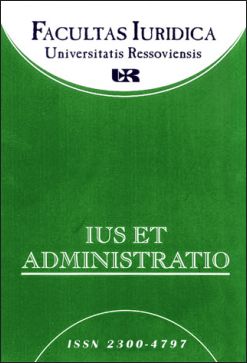Introduction into the Problems of Karel Vasak’s Concept of the Third Generation of Human Rights
Keywords:
human rights, liberty, equality, solidarity rights, generations of human rightsAbstract
The aim of the paper is to present the concept of the third generation of human rights. This concept was initially proposed in the late 1970’s by Karel Vasak. K. Vasak suggested that the three generations of human rights corresponded respectively to the three ideas proclaimed in the French revolution: liberty, equality and fraternity. The author has made an attempt to review the generations of human rights, with the particular emphasis of the third generation of human rights, also called the solidarity rights. The article contains historical and dogmatic analysis of solidarity rights, as well as discusses the fundamental assumptions of third generation of human rights. The conducted analysis allows to formulate a conclusion that the solidarity rights are necessary to protect such human values as: peace, development or healthy environment.
Downloads
Downloads
Published
How to Cite
Issue
Section
License
Copyright (c) 2014 Ius et Administratio

This work is licensed under a Creative Commons Attribution-NonCommercial-NoDerivatives 4.0 International License.

